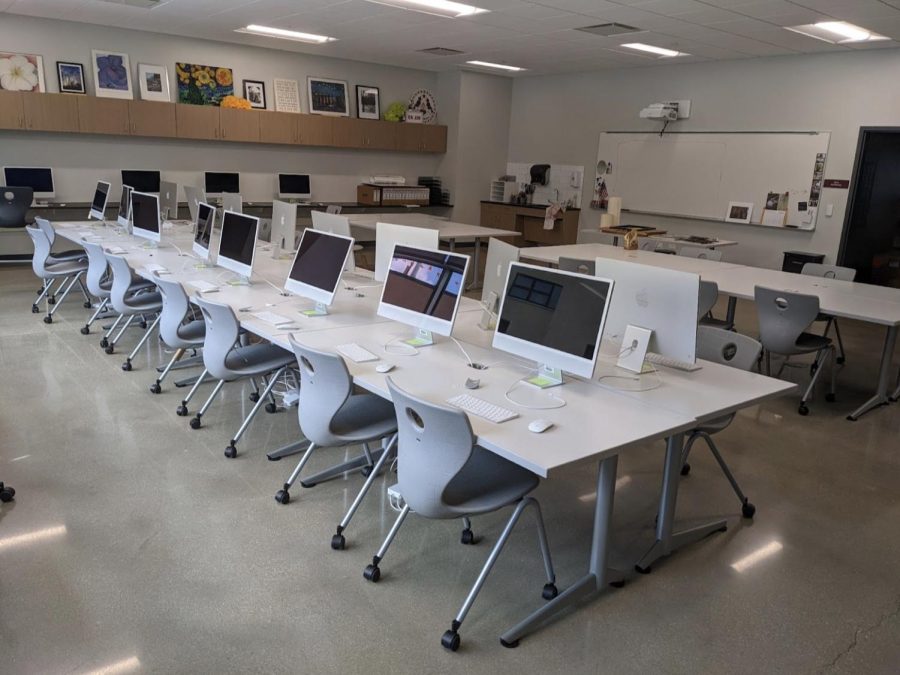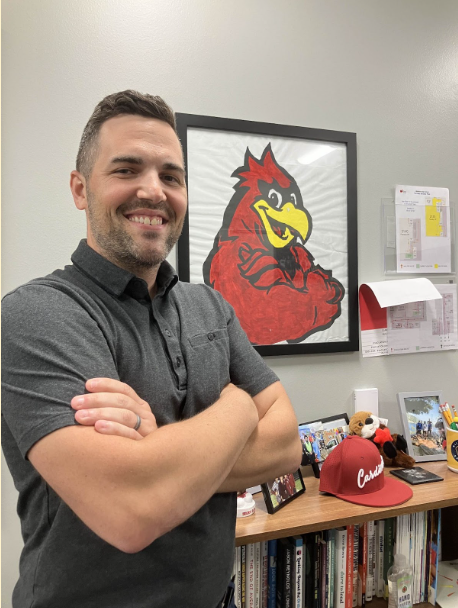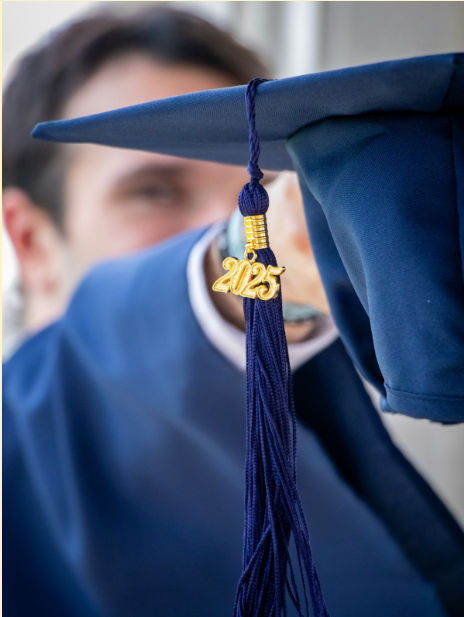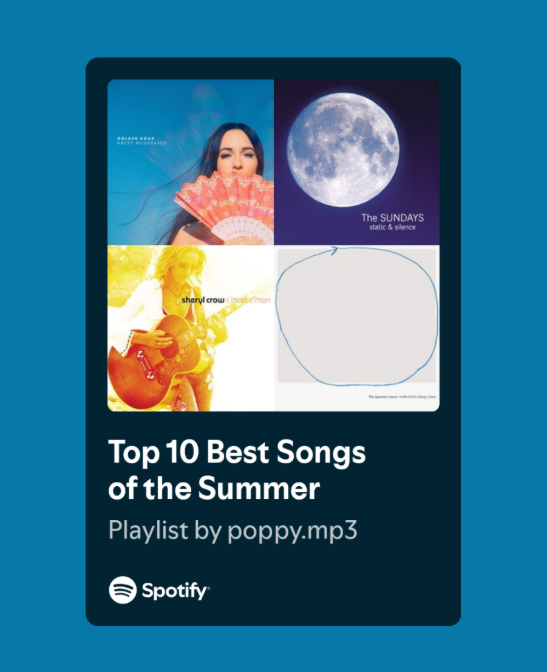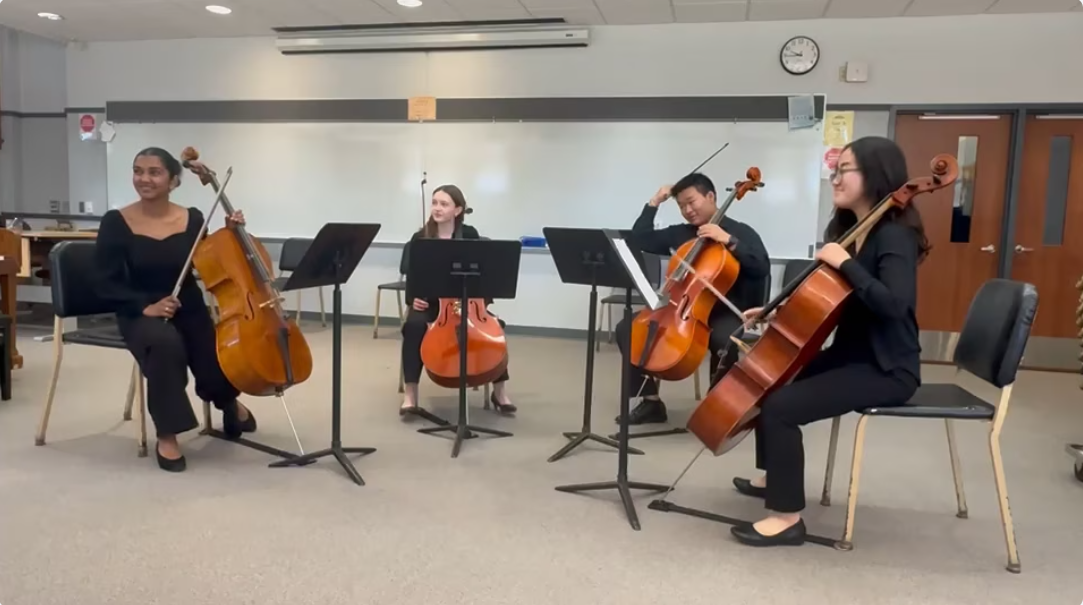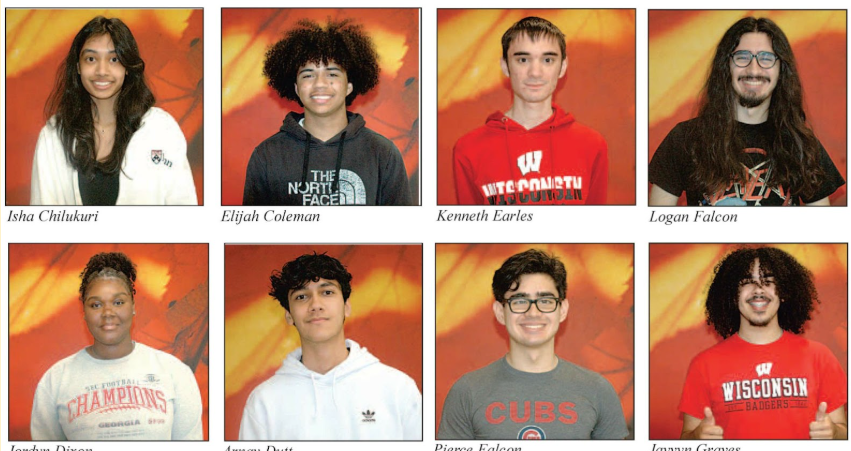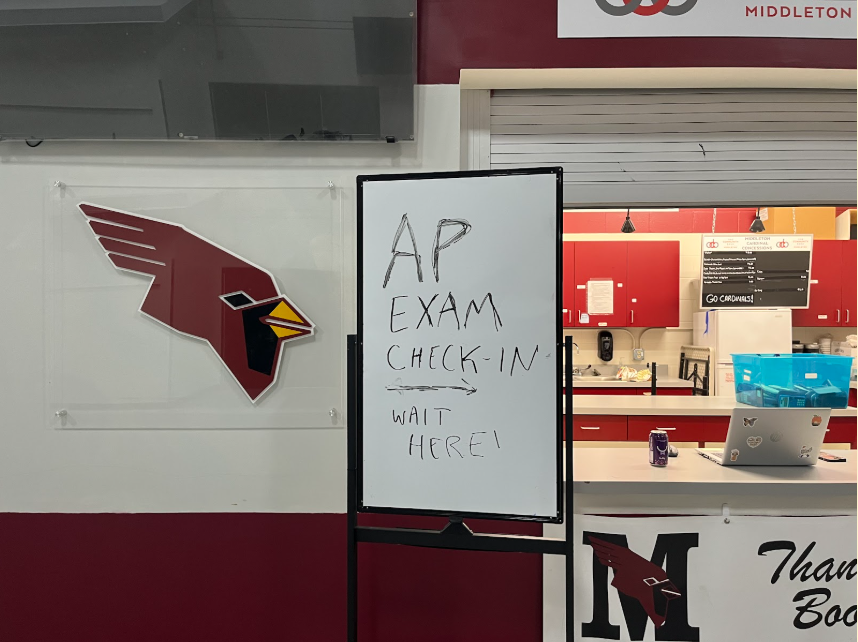ChatGPT: A Tool of Deception
ChatGPT can be accessed by opening a browser to chat.openai.com on a device, then creating or logging into an account.
February 26, 2023
Since its release on Nov. 30, 2022, ChatGPT, an artificial intelligence (AI) chatbot, has gained immense popularity. The revolution in AI word processing has left many wondering about the future of education at Middleton High School (MHS) and many other educational institutions across the United States.
ChatGPT is a language model created by OpenAI, a programming start-up, that is capable of answering questions and following instructions the user inputs. It fulfills requests with conversation-like responses using its pre-programmed data unless the request is inappropriate, as determined by OpenAI’s programming, although it is not always perfect.
OpenAI’s website notifies users that “while we’ve made efforts to make the model refuse inappropriate requests,” it “may occasionally generate incorrect information” or “produce harmful instructions or biased content,” along with its “limited knowledge of world and events after 2021.”
As computer science teacher Lori Hunt explains, when compared to humans, computer programs are “more concerned about getting the job done,” rather than focusing on human interactions in programs which can result in the output of false information.
ChatGPT is the first of its kind open for public use, although similar language models have existed before its release, including GPT-3 which is what ChatGPT was modeled after.
To use ChatGPT, the user can type in a request, such as “Write a story about a dragon named Stella,” or “Find me a recipe for chocolate cake,” to which then ChatGPT will respond with its pre-programmed data, writing out what the user requests.
However, ChatGPT’s wide database allows its functions and effects to go beyond writing an entertaining story or showing a recipe for chocolate cake. When asked, ChatGPT can generate essays for school assignments, summarize a new subject, write out code for a computer program and much more.
More often than not, the AI program generates accurate or seemingly correct information, which can be a powerful tool of deception when used in education, a topic that is prompting school action across the country today.
Teacher Opinions
ChatGPT and AI are a recent addition to school life, particularly for English teachers and school administration, and pose a new set of challenges in mitigating academic dishonesty. The similarities in the writing themselves and the numerous loopholes for evading the technology developed to recognize AI writing make it hard to differentiate whether the author is human or AI.
When asked about ChatGPT, English teacher Kris Cody recalls the beginning of the Gutenberg Printing Press, the first printing press developed in Europe that started the Printing Revolution and standardized the spreading of information. At the time of Gutenberg Printing Press’s release, people were concerned about whether this accessibility to information would cause issues, just as people are worried about the consequences that may come with chatbots today.
“It reminds me of when calculators became accessible to people, now the job is to figure out how we integrate that kind of technology with what we’re doing…people are going to be able to do a lot more with less background knowledge than they could before,” Hunt said.
“We’re going to have problems,” Cody adds. “Every technology creates fear and opportunity, and the fears are not unfounded,…. [but] the opportunities are real.”
Many teachers are worried that students will ask chatbots to do their work for them instead of working on their own to develop ideas, hone their writing skills, and produce their own work.
Cody adds that the new technology has created concern as it “opens the possibility [for the student] to farm out [their] work, and to not do the hard labor and the engagement that…learning demands.”
Raymond Rosing, an associate principal of the Capella Support Center, emphasized that as policies change to reflect the availability of new tools, ChatGPT and new AI should not be labeled as “good” or “bad,” but that classrooms should teach students when usage is appropriate.
School Policies
Rosing explained that using ChatGPT to create a work to pass as one’s own falls under the school’s policies about academic dishonesty, which are described in the 22-23 school year MHS Code of Conduct.
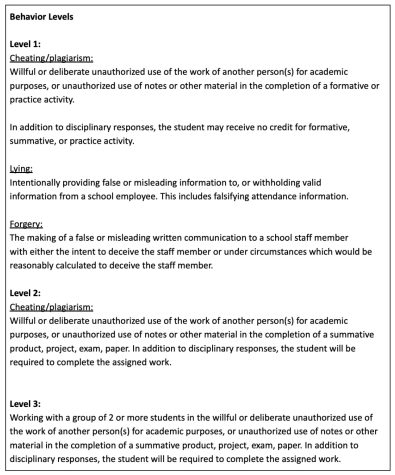
Further, the response to the behaviors corresponding to each behavior level outlined in the Code of Conduct are:
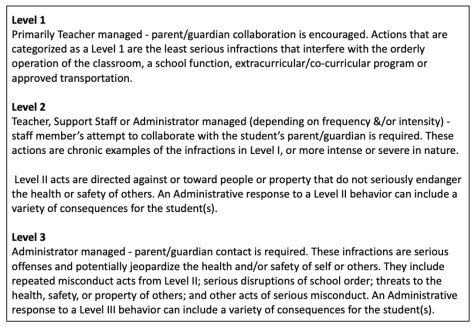
Student Opinions
ChatGPT at School
Students have had both positive and negative reactions to ChatGPT and the opportunities it provides. Anonymity was requested by students in their interviews.
“If you are asking a question of how to solve it [a math problem], you can use that method to solve other things,” said an MHS senior.
Another student expressed how ChatGPT could be used after completing the main parts of a task, such as asking the chatbot to make the pre-written email more enthusiastic or formal.
But other students believe that ChatGPT can oversimplify tasks.
A freshman believes using ChatGPT would make one “lazier because you don’t have to do your own work.”
New Policies in English Classes
With ChatGPT’s capabilities with writing assignments, the MHS English Department has shaped a new policy in English classes that addresses concerns of students and teachers, requesting proof of progress with a version history for assignments on the same Google Doc.
As a result of the new policy, some students report that they had to change their studying habits.
An anonymous student said that they feel the new policy “is annoying because I always procrastinate on my work the night before,” and with the version history policy they are worried writing in one sitting will make it look like they copied and pasted from ChatGPT. But they noted that the new policy “could be beneficial in that I start writing earlier.”
Similarly, the freshman states that she will “only be working on the Google Docs instead of copying and pasting it from some other platform,” such as Microsoft Word, to have a version history of all her edits in the Google Document when she submits.
The Future
Although different technologies are in progress for recognizing ChatGPT in school work, many students do not believe there will be an end to AI’s impact on classrooms.
“I think people will want to continuously try to develop something like this,” said the MHS freshman. “There will continuously be people that will try to develop something to stop it…I think it’s gonna be a continuous cycle.”
A junior remarked that with ChatGPT’s discreteness, they believe that, “There is not much mitigation that can be done other than trying to enhance the learning process,” and changing the curriculum so that people “are less incentivized to cheat,” unless obtaining resources for recognizing AI.
Even with the unknown future with new technologies in education, Rosing reflected that ChatGPT and AI in schools are “open[ing] the door for us as humans to talk about learning, thinking, and the creative process in a way that maybe conversations hadn’t been happening before.”



